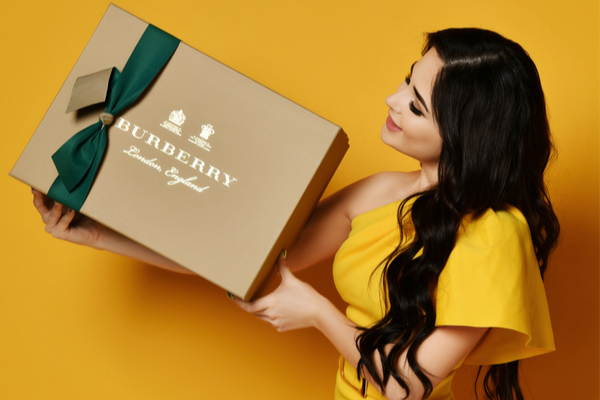Burberry has partnered with China’s tech giant Tencent to launch a luxury concept store using social media interactions. The British retailer opened its first “social retail store” last week in Shenzhen, China’s technology hub, and the companies eventually want to roll the concept out across Burberry’s network in China.
The Shenzhen social store is the first stage of the partnership, aimed at positioning Burberry as an innovator among Chinese shoppers, who account for around 40% of its sales. “It marks a shift in how we engage with our customers,” Burberry’s chief executive Marco Gobbetti said. “When it came to innovating around social and retail, China was the obvious place to go as home to some of the most digitally savvy luxury customers.”
Tencent’s WeChat social messaging platform, China’s equivalent of WhatsApp, plays a big role in this new customer experience. The app has more than 1 Billion users in China.
How it works: a WeChat programme allows shoppers to unlock exclusive content and personalised experiences which they can share on their social media networks. All the clothes are labelled with QR codes which show product information on the customer’s phone when scanned. “It is a unique space to test and learn, and to trial innovation that can be expanded to the rest of the Burberry network in China,” Mr Gobbetti added.
Retail analysts praised Burberry for the hybrid store which combines online shopping with traditional bricks-and-mortar retailing. “Burberry has been savvy and ahead of the curve in understanding the importance of social media and e-commerce in targeting Chinese consumers,” said Shaun Rein, founder of the China Market Research Group. “Too many luxury brands focus on bricks and mortar and the in-store experience only while Chinese want to shop online.”
Luxury brands have been selling strongly in China as residents can’t travel overseas on expensive foreign shopping sprees due to coronavirus travel restrictions. “China is the best bet with the most digital and social savvy consumers, and a large market for luxury retail,” said Siddharth Pathak, a partner at management consulting firm Kearney. “The usage of digital in stores has been prevalent in China for a few years now but this definitely takes it to a whole new level.”
Unfortunately, the tie-up comes as tensions rise between the UK and China, with China’s UK ambassador saying relations have been “seriously poisoned,” so Burberry could face headwinds given the growing political tensions. The two countries have clashed over a number of issues recently including the banning of Chinese technology firm Huawei from the UK’s 5G mobile network and China’s new security law imposed in Hong Kong. “Burberry could get caught up in UK-China tension. Chinese might boycott the brand if the UK continues to be seen supporting the Hong Kong riots,” warned Mr Rein. Burberry’s luxury brand has 61 stores in China, and with the new Tencent partnership, they’re really hoping that doesn’t happen.
—
Photo Credit: Dmitry Lobanov / Shutterstock.com
